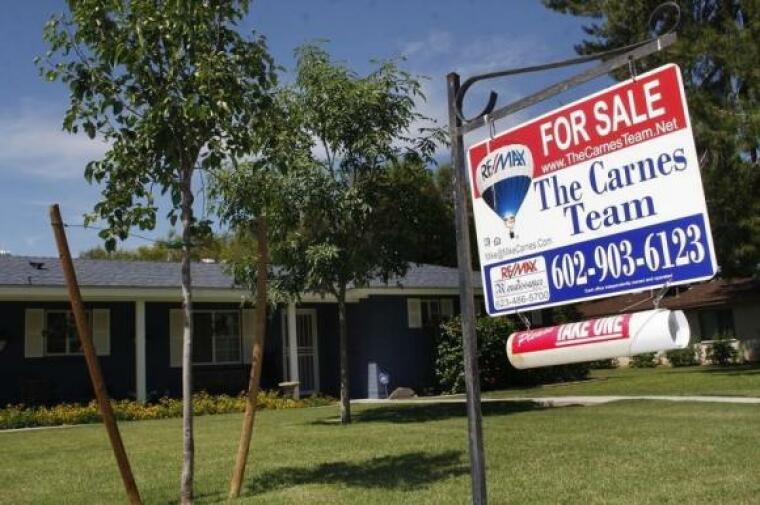To Rent Or To Buy? 6 In 10 Millennials Prefer Renting To Owning House

Nearly six in 10 millennials say they would rather rent than buy a house, a decision that may cost them over $700,000 in the long term, MarketWatch reported.
According to a survey by EliteDaily and Millennial Branding, the results of which were released recently, 59 percent chose renting over owning a house.
Only one in four said they were either very likely or completely likely to buy a house in the next five years, according to the poll which had 1,300 millennial respondents.
That's "bad news for the real estate industry," the report said.
This trend can be seen in data from the Demand Institute, which shows that currently only about one in four millennials owns a home, from about one in three in the mid-1970s and early 1980s.
One reason is that more than six in 10 feel that they simply cannot afford it. Another is that millennials tend to marry and have children later, as these two factors often cause purchases of houses, explained Dan Schawbel, the founder of Millennial Branding.
Millennials are also a generation that do not like feeling stuck in a single place, he said.
Daren Blomquist, vice president of RealtyTrac, said the decision to rent may be a costly one, considering that now is a good time to buy a house, if one plans on staying for at least five years, in many markets because of the very low interest rates.
"In most markets, it is still cheaper to buy than to rent [each month]" — even when you factor in the insurance and property tax payments, in addition to the mortgage payments," he said.
A median home in the U.S. costs $190,000. With annual home price appreciation at around three percent, a millennial who buys an average home today and pays $19,000 down with a 30-year fixed mortgage rate at 4 percent would own a house with $426,000-value in 2045. This is higher than the $373,000 in payment, including mortgage, taxes, and insurance.
"Plus, after 30 years, the person could live rent-free — a compelling prospect for retirement," wrote MarketWatch.
However, if the millennial chooses instead to pay this year a monthly rent of $1,312, the average fair market rent for a three-bedroom space nationwide, and his rent appreciates at 2.7 percent a year, he will end up paying almost $717,000 in rent over three decades, without owning an asset.
Waiting to buy a house is also costly as interest rates and median house prices are likely to increase. In a decade, a $190,000-average home would cost about $249,000 later.
If interest rates go back to their historical 5.6-percent norm, monthly payment for a $249,000-home would be $1,574, up by over 50 percent over the $1,037 house payment for a median priced home now.
Over those 30 years, the millennial would also have to pay $566,640 for a house worth $558,356 at the end of the period.
"In this scenario you wouldn't come out positive on your investment in the property until a year after the mortgage was paid off, in 2056 — at which point the home would have a projected value of $573,608," said Blomquist.
But Blomquist also warned: "If you can't afford it, don't buy."
 Christians don't have to affirm transgenderism, but they can’t express that view at work: tribunal
Christians don't have to affirm transgenderism, but they can’t express that view at work: tribunal Archaeology discovery: Medieval Christian prayer beads found on Holy Island
Archaeology discovery: Medieval Christian prayer beads found on Holy Island Presbyterian Church in America votes to leave National Association of Evangelicals
Presbyterian Church in America votes to leave National Association of Evangelicals Over 50 killed in 'vile and satanic' attack at Nigerian church on Pentecost Sunday
Over 50 killed in 'vile and satanic' attack at Nigerian church on Pentecost Sunday Ukrainian Orthodox Church severs ties with Moscow over Patriarch Kirill's support for Putin's war
Ukrainian Orthodox Church severs ties with Moscow over Patriarch Kirill's support for Putin's war Islamic State kills 20 Nigerian Christians as revenge for US airstrike
Islamic State kills 20 Nigerian Christians as revenge for US airstrike Man who served 33 years in prison for murder leads inmates to Christ
Man who served 33 years in prison for murder leads inmates to Christ


 Nigerian student beaten to death, body burned over ‘blasphemous’ WhatsApp message
Nigerian student beaten to death, body burned over ‘blasphemous’ WhatsApp message 'A new low': World reacts after Hong Kong arrests 90-year-old Cardinal Joseph Zen
'A new low': World reacts after Hong Kong arrests 90-year-old Cardinal Joseph Zen Iran sentences Christian man to 10 years in prison for hosting house church worship gathering
Iran sentences Christian man to 10 years in prison for hosting house church worship gathering French Guyana: Pastor shot dead, church set on fire after meeting delegation of Evangelicals
French Guyana: Pastor shot dead, church set on fire after meeting delegation of Evangelicals ‘Talking Jesus’ report finds only 6% of UK adults identify as practicing Christians
‘Talking Jesus’ report finds only 6% of UK adults identify as practicing Christians Mission Eurasia ministry center blown up in Ukraine, hundreds of Bibles destroyed: 'God will provide'
Mission Eurasia ministry center blown up in Ukraine, hundreds of Bibles destroyed: 'God will provide' Church holds service for first time after ISIS desecrated it 8 years ago
Church holds service for first time after ISIS desecrated it 8 years ago Burger King apologizes for 'offensive campaign' using Jesus' words at the Last Supper
Burger King apologizes for 'offensive campaign' using Jesus' words at the Last Supper Uganda: Muslims abduct teacher, burn him inside mosque for praying in Christ’s name
Uganda: Muslims abduct teacher, burn him inside mosque for praying in Christ’s name